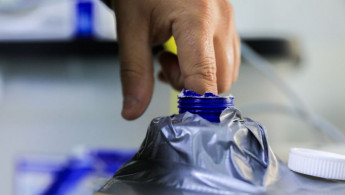Iraqi Kurdistan sets October 20 for crucial parliamentary elections after delays
Nechirvan Barzani President of the Iraqi Kurdistan region set 20 October as the new date for the long-overdue parliamentary elections, a critical step toward political stability following multiple delays and intense disputes.
"We have decided to set the date of October 20, 2024, for the general elections of the sixth term of the Kurdistan Region of Iraq parliament," announced Dilshad Shahab, spokesperson for the Kurdistan Region Presidency, during a press conference. Shahab cited an official decree from President Barzani.
While Shahab acknowledged that the date might not satisfy all political parties, he emphasised that it was a necessary compromise.
"This date is not the date that everyone agreed on, but the date that we ultimately chose. There is no solution other than holding the Kurdistan parliament elections," he said. Authorities intend to adhere to this schedule and will work with Iraq's electoral body to ensure the process proceeds smoothly.
"We are convinced that there is no excuse, and we are hopeful, along with the political parties, that the elections will be held," Shahab stated, noting that the issue over minority seats had been resolved. He stressed that the absence of a functioning legislature had undermined the Kurdistan Region's legitimacy and autonomy, warning that further delays could exacerbate the situation.
Despite the new date, many Kurdish politicians and activists argue that there are no guarantees the vote will not be postponed again. They point to the silence from the Iraqi federal government and the international community as a sign of uncertainty about the elections' future.
Elections in Iraqi Kurdistan were initially scheduled for late 2022, but disputes between the two main ruling parties, the Kurdistan Democratic Party (KDP) and the Patriotic Union of Kurdistan (PUK) led to several delays.
Also in February, Iraq's top court ruled that the Kurdistan region's parliament would consist of 100 lawmakers, effectively terminating the 11 quota seats for Turkmen, Christians, and Armenians that had been in place since 1992. The PUK and a Christian party based in Sulaimaniyah filed the lawsuit, prompting this ruling.
Last month, Iraq's Supreme Federal Court upheld the Supreme Judicial Council's decision to allocate five seats to minorities in the Iraqi Kurdistan region. As a result, Kurdish parties will compete for 95 seats. Iraq's Independent High Electoral Commission (IHEC), which is supervising the region's elections as per Iraq's top court, has completed preparations for the vote.
The five allocated seats will be divided among the three provinces of the Kurdistan Region: Sulaimaniyah will receive two seats, Erbil will receive two seats, and Duhok will receive one seat. IHEC clarified that Erbil and Sulaimaniyah would each receive one seat for the Christian and Turkmen communities, while Duhok's seat would be allocated to the Armenians.
In March, the KDP announced a boycott of the upcoming parliamentary elections due to concerns over Baghdad's decision to eliminate the minority quota. However, earlier this month, the party reversed its decision and opted to rejoin the electoral process.




 Follow the Middle East's top stories in English at The New Arab on Google News
Follow the Middle East's top stories in English at The New Arab on Google News
![A group of Palestinians, foreign and Israeli activists gather to participated in an olive picking event on the land in the town of Battir, which is under threat of confiscation by Israel in Bethlehem, occupied West Bank on 8 November 2024. [Getty]](/sites/default/files/styles/image_330x185/public/2182930803.jpeg?h=199d8c1f&itok=__0LgGsa)

![People gathered around the rubble of destroyed houses to search for survivors [Getty]](/sites/default/files/styles/image_330x185/public/2024-11/GettyImages-2184733820.jpg?h=199d8c1f&itok=NiM1LO2f)